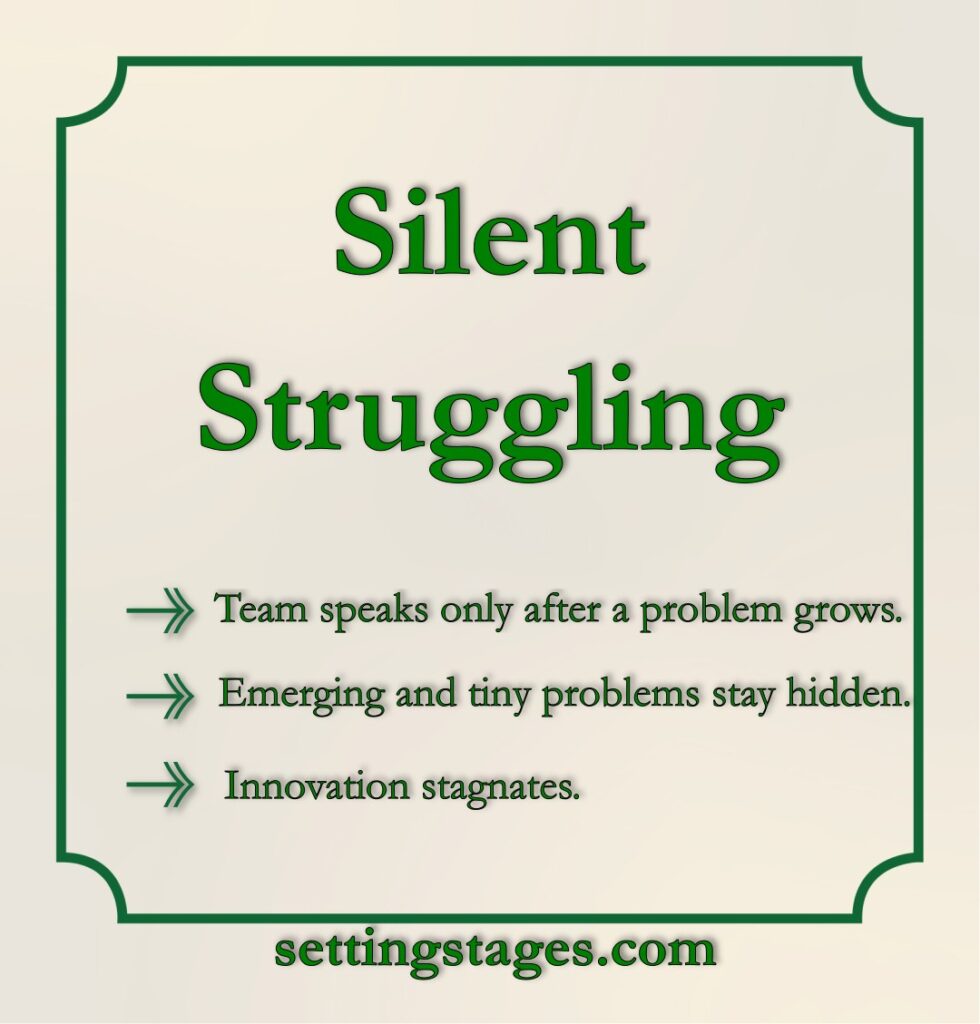How can you recognize a lack of Psychological Safety in your team? One of the signals is Silent Struggling. Here’s what that means.
They thought she would ask for help, she thought they would offer it.
In the end, all of us wasted time waiting.
At a game company in Spain, the team was vibrant.
Twelve people from all over the world.
Creative. Loud. Full of energy.
Everyone clicked. At least, it seemed that way.
Then there was her.
Quiet. Timid. Always polite.
She joined the stand-ups. She delivered her tasks.
But something felt… distant.
The others assumed she would speak up if something was wrong.
She assumed that eventually, someone would notice she was struggling.
Neither was right.
She only asked for help when the damage was already done.
Her tasks were piling up. Her confidence was shrinking.
By the time she spoke up, deadlines were missed and opportunities were lost.
Not because she lacked talent.
But because she felt alone.
And no one knew.
The signal

Why it is essential to signal this early?
This is Silent Struggling.
When people don’t feel safe enough to ask for help, they wait.
They hope.
They assume someone will notice.
But help that comes too late is sometimes no help at all.
Psychological Safety means being clear about where support lives.
It means creating a culture where asking for help is seen as strength, not failure.
And it starts with checking in, not checking out.
What can you do?
If you recognize this… seek help.
Silence is not golden when it hides suffering.
Make it easy to ask. And make it safe to answer.
